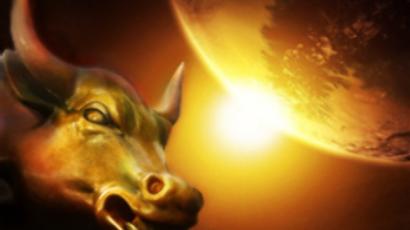Tuesday's Press Review

This Tuesday the Russian press notes the step-up of Russia’s role in UN peacekeeping, comments on the G20 summit and the Geneva negotiations on Abkhazia and South Ossetia, interviews European politicians and hails Emperor Nicholas II who has outdone Lenin
ROSSIYSKAYA GAZETA quotes a comment by Deputy Finance minister Dmitry Pankin on the G20 summit. The minister says that the main thing about the summit is the fact that it has actually happened. He says the meaning of the summit is in the understanding that came to every participant: we need to negotiate and we need to agree with each other. The head of the expert group that accompanied the Russian delegation, Evsey Gurevich says in the same pages that if the agreement on financial controls was predictable, the fact that all the participants agreed to hold all protectionist measures for a year speaks of a true unity in the face of the global financial crisis.
NEZAVISIMAYA GAZETA has an op-ed piece by Prof. Bakhtiyar Tuzmuhammedov of the Diplomatic Academy of Russia and participant of several UN peacekeeping missions. He writes that Russia’s role in UN peacekeeping is growing, and the number of Russian servicemen and police involved in UN peacekeeping will soon exceed that of the U.S. and the UK. However he notes that Russia’s monetary and material support of these operations is still negligent in comparison to other leading World nations. In that sense, he writes, we are behind the Netherlands, Spain and South Korea. The writer says that Russian helicopters and their crews have acquired quite a good name with UN peacekeepers. So, he writes, why shouldn’t we increase the number of helicopters and crews we send to the UN? Participation in peacekeeping operations, he concludes, is one of the most important functions of every state, and a mighty tool for creating mutual international understanding and integration, so it shouldn’t be pushed to the side.
KOMMERSANT: Sergey Markedonov of the Institute of Political and Military Analysis writes in his column that at first glance the second round of the Geneva negotiations regarding Abkhazia and South Ossetia does not look promising in any way. He says, however, that even if there’s no progress on the main points of the agenda, if the Georgian side suggests to replace Russian peacekeepers in Abkhazia and South Ossetia with international ones, and Russia responds in a ‘symmetrical way’, still there will be gain for Russia beyond doubt. He says the gain will be in the very fact of the negotiations because that will be another step in the restoration of the pragmatic dialogue between Russia and the EU.
VREMYA NOVOSTEI has an interview with the chairman of the Polish Senate Bogdan Borusiewicz who says that Polish–Russian relations are not so bad at the moment, but Russia’s rhetoric and actions on the issue of the U.S. missile defence in Poland and the Czech Republic ‘are causing concern among Polish politicians.’ The Senate chairman says that everything in the matter is now up to the U.S. and Russia and their ability to talk to each other. He says, Poland has said their word on the issue, having agreed to the deployment of those elements, and ‘no declaration from Russia can change that.’
IZVESTIA quotes a Belgian Senator, Josi Dubier, who says after a fact-finding visit to Tskhinval that president Saakashvili of Georgia is a war criminal. The Senator also says that he will make every effort to block Georgia’s entrance into NATO, even if it would mean persuading the Belgian Minister of Foreign Affairs to use the nation’s power of veto. The Senator insists: NATO is a peaceful alliance, but acceptance of such members as Georgia would effectively turn it into an aggressive bloc.
TRUD notes that the rating of Emperor Nicholas II in the polls reflecting the public sentiment about Russia’s leaders of the XXth Century is the highest at 44% closely followed by Lenin with 42% and Felix Dzerzinski, the founder of the ‘Che Ka’ and KGB with 40%. Admiral Kolchak, the leader of the White movement in Siberia during the Civil War has gained 32% and Stalin only 28%. The poll, says the paper, was conducted by the Russian Institute of Public Opinion Research.
Evgeny Belenkiy, RT













